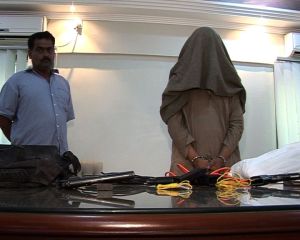Animals have rights too!
November 4, 2010
Last month, Suffolk County became a leader in animal abuse protection. Suffolk County legislators passed a law calling for the nation’s first animal abuse registry. The law requires those convicted of abusing animals to register their name, address, and a photograph with the registry. Sensitive to the concerns about the cost of maintaining such a registry, the legislation also required that each offender must pay an annual fee of $50 for the five years they are required to register with the database. Additionally, the database will not be run by Suffolk County, but by the Suffolk County Society for the Prevention of Cruelty to Animals. If a convicted abuser fails to register, they will face either jail time or a significant fine of $1,000.
MEGAN’S LAW FOR ABUSED ANIMALS
The registration of convicted criminals is nothing new. Megan’s Laws, designed to assure the authorities and public of the whereabouts of convicted sex offenders, have been in effect for years. The animal abuse registry is designed to have a similar effect. The list of abusers will be open to the public, so that pet owners and neighbors may know who, within their community, is potentially a threat to their companion animals.
The motivation for the law’s passage is really two fold. First, Suffolk County has been home to a number of horrid animal abuse cases within the past year. Most notably, a Selden woman who tortured, killed and buried kittens, cats, and dogs in her backyard made national headlines as her heinous acts were finally halted after her children reported her to the authorities. The second motivation for the bill’s passage, was articulated best by the registry’s champion, Suffolk County legislator Jon Cooper. Cooper told reporters, “[w]e know there is a very strong correlation between animal abuse and domestic violence… Almost every serial killer starts out by torturing animals.” Cooper observations have long been known to those working within the field of animal abuse and domestic violence.
A New Jersey study found that 88% of families with children that had experienced physical abuse, also recorded incidents of animal abuse within the home. Also, it is estimated that 88% of pets living in households with domestic abuse are either abused or killed. The link between animal abuse and serial killers is also very real. Studies have showcased that the vast majority of convicted serial murders have had a history of animal abuse. This list includes people such as the Son of Sam killer David Berkowitz, Jeffrey Dahmer, and the Boston Strangler Albert DeSalvo.
The idea for the registry was nothing new. In fact, the registry has been or is currently being considered in a number of states and counties, including California, Minnesota and New York State. The registry is the brainchild of Animal Legal Defense Fund (ALDF), an organization dedicated to protecting the lives and advancing the interests of animals through the legal system. ALDF’s hope is that, as with the proliferation of Megan’s Law a decade ago, Suffolk County’s passage of the animal abuse registry will translate into the passage of similar laws throughout the nation.
ABOUT OUR LAW OFFICE
Our office is experienced in handling all types of cases, including criminal, father’s rights, divorce, and personal injury. Call us if you need assistance at 1-800-344-6431 or contact us be email.
Why Have an Irrevocable Trust?
June 23, 2010
 Wills, revocable trusts, and irrevocable trusts are all estate planning devices. Revocable trusts are a type of trust that can be changed, modified, or revoked at anytime. This type of trust allows you to change your mind with regard to all aspects of the terms of the trust. These trusts are very flexible.
Wills, revocable trusts, and irrevocable trusts are all estate planning devices. Revocable trusts are a type of trust that can be changed, modified, or revoked at anytime. This type of trust allows you to change your mind with regard to all aspects of the terms of the trust. These trusts are very flexible.
Uses of a revocable trust:
1. Revocable living trusts avoid probate. The assets in the trust at the time of the death of the individual who made the trust pass directly to the beneficiary. The trust does not have to be probated.
2. It is private document. Wills need to be probated. This opens up the terms of the will to review by a court. Once the will is filed with the courts it becomes a public document and other individuals can obtain copies of the will. An example is Jacqueline Kennedy Onassis’s will in Manhattan. So many people wanted to see it that it was displayed to the public mounted it under plexiglass. The details of your assets and the individuals who receive your assets remain a private matter.
3. It establishes a plan that deals with mental disabilities such as Alzheimer’s disease and other mental illnesses that effect seniors. When you place assets in a revocable trust and the person who created the trust becomes disabled, the trustee or alternate trustee supervises the trust and distribution of the assets therein. If you do not have this type of trust or a power of attorney, it becomes necessary for your loved ones or next of kin to bring a guardianship proceeding under article 81 of the New York Mental Hygiene Law to appoint a guardian for you.
Should you have questions regarding revocable trusts contact the trust attorneys at the law office Elliot Schlissel at 1-800-344-6431 or by email.
Recovering from Injuries Caused by Stairway Accidents
June 17, 2010
 A property owner has an obligation to make sure that staircases are maintained in a safe condition. It is also the property owner’s obligation to see to it that the staircases do not fall into disrepair. Most injuries on staircases are caused when an individual slips, and falls or trips.
A property owner has an obligation to make sure that staircases are maintained in a safe condition. It is also the property owner’s obligation to see to it that the staircases do not fall into disrepair. Most injuries on staircases are caused when an individual slips, and falls or trips.
Staircases should be clearly marked. Changes in floor surface, modifications in decorations, or even changes in the handrails are ways that people who are walking on stairs are alerted to potential problems. Staircases that are visually confusing or feature distractions, changes in the height or depth of the stairs, or material on the stairs that makes them slippery create potentially dangerous situations. Staircase should be appropriately lit and made with nonslip surfaces.
In the event you, a friend or a loved one trips and falls on a staircase, recovery for the injuries may be possible. Email or call the New York and Long Island slip and fall lawyers at the Law Offices of Elliot Schlissel for a free consultation at 1-800-344-6431.
Recovering from Accidents in the Work Place
June 15, 2010
 Work place injuries are quite common. They may result in serious injuries and even death. In the event you receive injuries related the your employment, you maybe entitled to compensation for your injuries. If your employer is responsible, workers compensation could provide you with financial remuneration for your injuries. In the event there are other individuals, companies, or circumstances involved you may be able to bring a personal injury lawsuit.
Work place injuries are quite common. They may result in serious injuries and even death. In the event you receive injuries related the your employment, you maybe entitled to compensation for your injuries. If your employer is responsible, workers compensation could provide you with financial remuneration for your injuries. In the event there are other individuals, companies, or circumstances involved you may be able to bring a personal injury lawsuit.
In addition to physical injuries you may suffer psychological and/or emotional injuries for which you may be entitled recovery. In the event an injury leads to your death, your family could be entitled to recovery.
Some injuries can cause permanent disability. Other types of injuries only cause what are known as partial disabilities. A partial disability or impairment may result in your having difficulty performing some aspects of your job. If you receive an injury related to your employment it is very important that you contact experienced knowledgeable attorneys to protect your rights. The New York and Long Island accident attorneys at the Law Office at Elliot Schlissel are here to help you 24/7. Contact us for a free consultation at 1-800-344-6431 or email us.
Alternative Programs for Juvenile Offense Punishment
June 10, 2010
 Governor David Patterson has established a juvenile justice task force authorized to investigate circumstances and procedures for sentencing juveniles in the State of New York. The task force has suggested that New York should stop sentencing low risk juvenile offenders to facilities far from their family residences. The task force has suggested in the alternative that they be sent to lower cost community based programs.
Governor David Patterson has established a juvenile justice task force authorized to investigate circumstances and procedures for sentencing juveniles in the State of New York. The task force has suggested that New York should stop sentencing low risk juvenile offenders to facilities far from their family residences. The task force has suggested in the alternative that they be sent to lower cost community based programs.
The community based programs would closely monitor the juveniles. They would establish mentoring programs for these children. There would be curfew checks, review of school performances and detailed after school programs to keep them busy. The study has shown that low risk juveniles who have been placed in similar programs can be rehabilitated without the need for institutionalization.
The task force recommendations are excellent. However, the State of New York will not be carrying them out. The budget submitted by Governor Patterson does not contain funds or programs that would encourage localities to develop the recommended community based alternative programs.
Under the current system, New York State reimburses localities for about half the cost of operating pretrial detention programs for juveniles. These costs can be as high as $200,000 per child, per year, to incarcerate a juvenile in a large institution. Presently the state has no program to reimburse localities for community based programs. These programs can cost as little as $5,000 per year.
Senator Velmanette Montgomery, a democrat from Brooklyn has proposed a bill in the State Senate to set aside $12 million to encourage programs for juvenile criminal offenders. These bill is a step in the right direction. Hopefully the legislature of the State of New York will approve it.
If your son or daughter has been charged with a juvenile offense, the attorneys at the Law Offices of Elliot Schlissel can help you. Call us at 1-800-344-6431 or email us.
Should Terrorist Get Miranda Warnings?
June 8, 2010
 Miranda warnings given to individuals arrested in th United States are given based upon the United States Supreme Court’s decision in Miranda v. Arizona. The Miranda warnings require the police officer, FBI agent or other governmental arresting officer to advise the arrestee that anything they say or do could be held against them, that they have a right to an attorney and if they cannot afford an attorney, an attorney will be appointed for them.
Miranda warnings given to individuals arrested in th United States are given based upon the United States Supreme Court’s decision in Miranda v. Arizona. The Miranda warnings require the police officer, FBI agent or other governmental arresting officer to advise the arrestee that anything they say or do could be held against them, that they have a right to an attorney and if they cannot afford an attorney, an attorney will be appointed for them.
President Obama is considering supporting a law that would either delay or eliminate the Constitutional Miranda warnings when dealing with individuals charged with terrorism. Constitutional attorneys and former prosecutors have discussed a terrorism exception with regard to giving Miranda warnings to individuals arrested for terrorist acts. They suggest a terrorism exception could last up to 48 hours before the Miranda warnings would have to given to the suspect. There has also been a discussion of a statue authorizing emergency detention of individuals suspected of having committed terrorist attacks.
The United States is currently the only country in the world that gives individuals suspected of being charged with crimes various warnings to protect themselves from making statements that could be used against them at trial.
I personally believe that the Miranda warnings are important protections for individuals suspected of committing crimes. However, a 48 hour exception to the Miranda rule should be carved out for suspects charged with terrorist acts. We live in a world in which terrorists seek to take away the basic freedoms that we have fought so hard to protect. This minor exception to the Miranda rule in certain circumstances maybe necessary to protect the lives of Americans against catastrophic terrorist attacks.
Vehicle Searches Incident to Arrest
June 2, 2010
 When can police officers search a vehicle? When they are arresting the occupant of the vehicle. In 1981, the United States Supreme Court in the case of New York v. Belton, 453 U.S. 454, stated “when a policeman has made a lawful custodial arrest of the occupant of an automobile, he may as a contemporaneous incident of that arrest, search the passengers compartment of that automobile and any containers therein.” The court rendered this decision based upon a “generalization that articles inside the relatively narrow passenger compartment of an automobile are in fact generally within the area in to which an arrestee might reach in order to grab a weapon or evidentiary item.” Fran Simmel v. California 395 U.S. 763.
When can police officers search a vehicle? When they are arresting the occupant of the vehicle. In 1981, the United States Supreme Court in the case of New York v. Belton, 453 U.S. 454, stated “when a policeman has made a lawful custodial arrest of the occupant of an automobile, he may as a contemporaneous incident of that arrest, search the passengers compartment of that automobile and any containers therein.” The court rendered this decision based upon a “generalization that articles inside the relatively narrow passenger compartment of an automobile are in fact generally within the area in to which an arrestee might reach in order to grab a weapon or evidentiary item.” Fran Simmel v. California 395 U.S. 763.
In a decision of April 2009, the United States Supreme Court in the case of Arizona v. Grant narrowed the circumstances under which there can be a search incident to arrest. In the Grant decision the United States Supreme Court stated that police may now search a vehicle incident to the arrest of the occupant of the vehicle only if the person being arrested is “unsecured and within reaching distance of the passenger compartment at the time of the search” or “it is reasonable to believe the (the passenger compartment) contains evidence of the arrest.”
The court stated in this decision “when the justifications are absent, a search of the arrestee’s vehicle will be unreasonable unless police obtain a warrant or show that another exception to the warrant requirement applies.”
In the a situation where the police arrest an individual driving a vehicle, place him custody, in hand cuffs and remove him from the vehicle and place him in the squad car there would be no reason for the police to engage in a warrantless search of the occupants vehicle unless a crime was committed involving contraband or a gun and police were searching for the contraband or gun.
Unfortunately this decision has not filtered down to most police organizations. Police routinely search vehicles when they put an occupant under arrest without justification. The prosecutors then seek to use any evidence obtained from said searches in the prosecution of the driver or other occupant of the vehicle. Based on this new United States Supreme Court decision, motions can be made to preclude the entry into evidence of material obtained through improper searches. If you or a friend or family member have been arrested and a vehicle was improperly searched feel free to give our office a call at 1-800-344-6431 or email us.
Parental Alienation- Wars Between Parents
May 31, 2010
 When custody or child visitation issues occur between separated or divorced parents, one or both parents sometimes seek to curry favor with the child or children. The parent takes this action either to ensure that he or she will receive custody or receive child support payments. In addition to currying favor with the child, some parents seek to undermine the relationship between the child and the other parent. When the child develops a strong resistance or rejection of a parent, that is disproportionate to that parent’s behavior, and this undermines that parent’s relationship with the child, this is referred to as parental alienation syndrome(PAS).
When custody or child visitation issues occur between separated or divorced parents, one or both parents sometimes seek to curry favor with the child or children. The parent takes this action either to ensure that he or she will receive custody or receive child support payments. In addition to currying favor with the child, some parents seek to undermine the relationship between the child and the other parent. When the child develops a strong resistance or rejection of a parent, that is disproportionate to that parent’s behavior, and this undermines that parent’s relationship with the child, this is referred to as parental alienation syndrome(PAS).
In a Canadian study conducted between 1989 and 2008 involving claims of parental alienation, there were allegations that parental alienation syndrome was present in 175 cases. The study showed that in 106 out of 175 cases, the courts found that there was parental alienation present. In 60% of the cases the mother was the parent involved in alienating the child from the father. In 31% of the cases the father was the parent involved in alienating the child against the mother. The study found that although there were gender differences involved in the alienation of children, mothers were more likely to make unsubstantiated claims of alienation against fathers. The study also found that alienation is most commonly perpetuated by the custodial parent against the noncustodial parent.
In the Canadian study the most common judicial remedy of dealing with parental alienation was to modify the custody arrangement.
Parental alienation is being recognized by the courts in New York more readily then it has been in the past. There is still a reluctance among many judges to use changing custody as a means of addressing this issue. Parental alienation may have the impact of reducing one parents access to visitation with his or her children. The more significant affect of parental alienation is to deprive a child from having a relationship with two loving parents.
Should you have any questions or issues concerning parental alienation feel free to contact Elliot Schlissel, Esquire at Schlissellawfirm.com or 1-800-344-6431.
Strip Searches: The Court Of Appeals Says No, No!
May 29, 2010
 Is it a common practice for police to use a search warrant to strip search every person in a location without a strong indication the place is “devoted” to criminal activity.
Is it a common practice for police to use a search warrant to strip search every person in a location without a strong indication the place is “devoted” to criminal activity.
Recently the New York State Court Of Appeals said that drugs found on one man in 2006 during a raid of an apartment in Syracuse can not be used as evidence. Robert Mothersel and six other individuals were stripped searched on this occasion.
The New State Court Of Appeals said broad-based search warrants are unconstitutional unless police surveillance shows every person at a particular location would have contraband or criminal evidence on them. In the case involving Robert Mothersel, the court found the strip searches were inappropriate. Mr. Mothersel was stripped searched and a body cavity search was conducted. Drugs were found in his buttocks. At the time of the search Mr. Mothersel was not under arrest. The Court of Appeals found the drugs found in Mr. Mothersel’s buttocks were illegally obtained and could not be used against him in court.
A Syracuse detective involved in the case stated at a court hearing “in the execution of hundreds of all-person-present warrants, the people were routinely stripped searched and required to facilitate the examination of their anal and genital cavities.”
Judge Libbman, writing for the New York Court Of Appeals, described circumstances wherin such broad-based strip search warrants would be approved.
He stated “we think it is clear that surveillance of a location may yield a factual basis to infer with the requisite force that the place is devoted to an ongoing illicit purpose, such as the manufacturing or marketing of narcotics, . . . and that all those present at the time of the contemplated search will probably in possession of contraband or other specified evidence of illegality.”
Strip searches, and especially body cavity searches, can amount to the deprivation of the most basic rights of privacy a United States citizen should expect. We hope you never experience this humiliating situation. If you or a family member were improperly subject to an outrageous violation of your right to privacy feel free to call us at 1-800-344-6431 or contact us by email. We will protect your rights.
NY Family Health Care Decisions Act
May 28, 2010
 Governor David Patterson, in the State of New York has recently signed into law the Family Health Care Decisions Act. This statute authorizes health care decisions to be made for a person who is incapacitated and has not prepared a healthcare proxy specifically indicating his or her wishes. This statute authorizes family members without a written advanced directive to make decisions to withhold or withdraw life support systems for their family members.
Governor David Patterson, in the State of New York has recently signed into law the Family Health Care Decisions Act. This statute authorizes health care decisions to be made for a person who is incapacitated and has not prepared a healthcare proxy specifically indicating his or her wishes. This statute authorizes family members without a written advanced directive to make decisions to withhold or withdraw life support systems for their family members.
The best means for dealing with making of medical decisions, if you should become disabled or incapable of making your own medical decisions, is to execute a health care proxy appointing someone you trust to make these decisions for you. Unfortunately more than 75,000 incapacitated individuals die each year in the State of New York with out having a health care proxy. Court decisions have ruled that life sustaining treatment cannot be withheld or withdrawn without clear and convincing evidence that the person would decline if they could. This has resulted in people being subject to fruitless treatments that actually violates their personal wishes or religious beliefs.
The new statue sets up a hierarchy to determine those individuals who can make the choices. The list of individuals capable of making these choices range from a guardian, to spouse, to a domestic partner, an adult son or daughter, parent, adult brother or sister, and/or some other relative or close friend. The purpose of the statue is to prevent needless medical treatment for those who, if they were competent, would not want it.
Image courtesy of Sun Sentinel

 Established in 1978,
Established in 1978, 